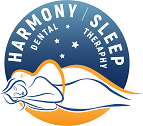
The sounds we call snoring is created when physical obstructions restrict the flow of air through the mouth and nose. These partial blockages of the airway result in more forceful and turbulent breathing, and cause soft tissues in the back of the mouth and throat to vibrate. There are a number of things that can cause airway obstruction. In some cases, the tongue is too relaxed, or there is insufficient muscle tone in the throat. When this happens, the tissues move backwards and collapse in the airway, creating a partial blockage. This type of relaxation occurs naturally when the body is in a deep sleep, but it can also be caused by alcohol or certain drugs such as sleeping pills. Aging also causes additional relaxation of these muscles, which is why snoring is more prevalent in older populations.
Certain physical characteristics may lead to snoring. An elongated soft pallet or large uvula will reduce the volume of the airway, and these tissues are also more likely to vibrate or create obstructions. Persons with bulky throat tissue are more likely to snore, which is why the condition is often linked to excess weight. Children with large tonsils and adenoids are also more likely to snore.
Nasal congestion or deformities in the nasal passages can cause or worsen snoring. Deformities such as a deviated septum or nasal polyps can cause snore-producing obstructions. Allergies and sinus infections can also cause a person to snore.
There are a number of things a person can do to reduce the likelihood or severity of snoring. Sleeping on the side rather than the back and elevating the head is often effective, as this position is less likely to allow the tongue or soft tissues of the throat to move backward and cause an obstruction. Weight loss will typically reduce the size of the neck and throat, which will in turn mitigate snoring. Avoiding muscle relaxants such as alcohol and sleeping aids will help keep snoring under control, as will avoiding large, fatty meals soon before bedtime. If these strategies aren't enough, dental sleep medicine can help through the use of oral appliances that help keep the airway open to promote easy breathing and reduce or eliminate loud and persistent snoring. These devices usually resemble sports mouth guards, and are custom-fitted to the user to ensure maximum comfort and effectiveness.
Mild or occasional snoring may have minimal effect on the quality of sleep, though it can be disruptive to a bed partner. When snoring becomes more pronounced and irregular, however, it can interfere with sleep quality, and might also be a symptom of a serious medical condition known as obstructive sleep apnea or OSA. If you or someone you know is a raucous snorer, or seems to stop breathing and gasp for air during sleep, you should consult with a sleep medicine professional.
• • •
|
|
| ``` PHYSICIAN REFERRAL FORM |
| SLEEP APNEA SELF TEST |
| SLEEP JOURNAL |
|
MARIA SOKOLINA D.D.S. 1066 Clifton Ave. Clifton, NJ 07013-3616 315 W57th Str, Ste 209, NYC, NY 10019 (973) 777-2731 (212) 960-8919 |
|
OFFICE HOURS: Mon: 8:00am - 5:00pm | Tue: 8:00am - 7:00pm Wed: 8:00am - 4:00pm | Thu: 8:00am -7:00pm Fri: 8:00am - 3:00pm | Sat: 8:00am - 2:00pm |







CONNECT WITH US

